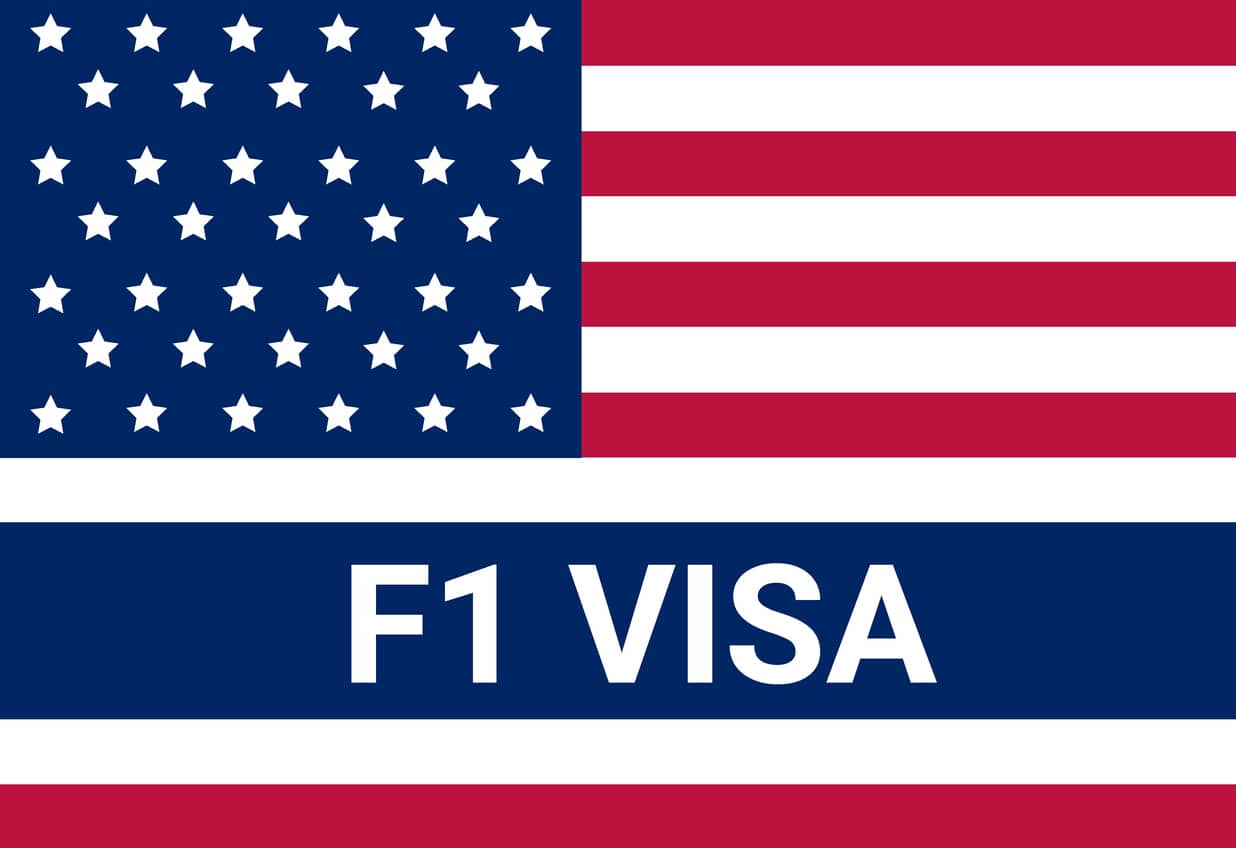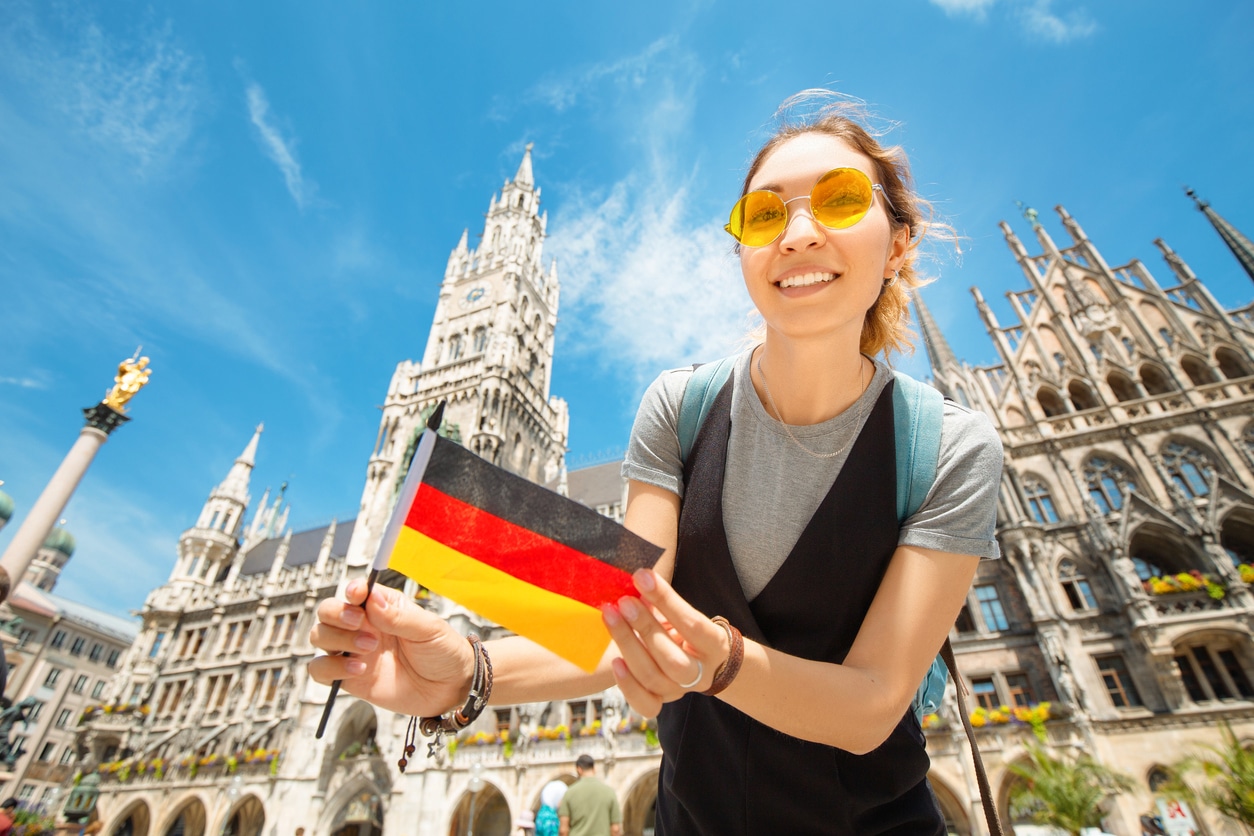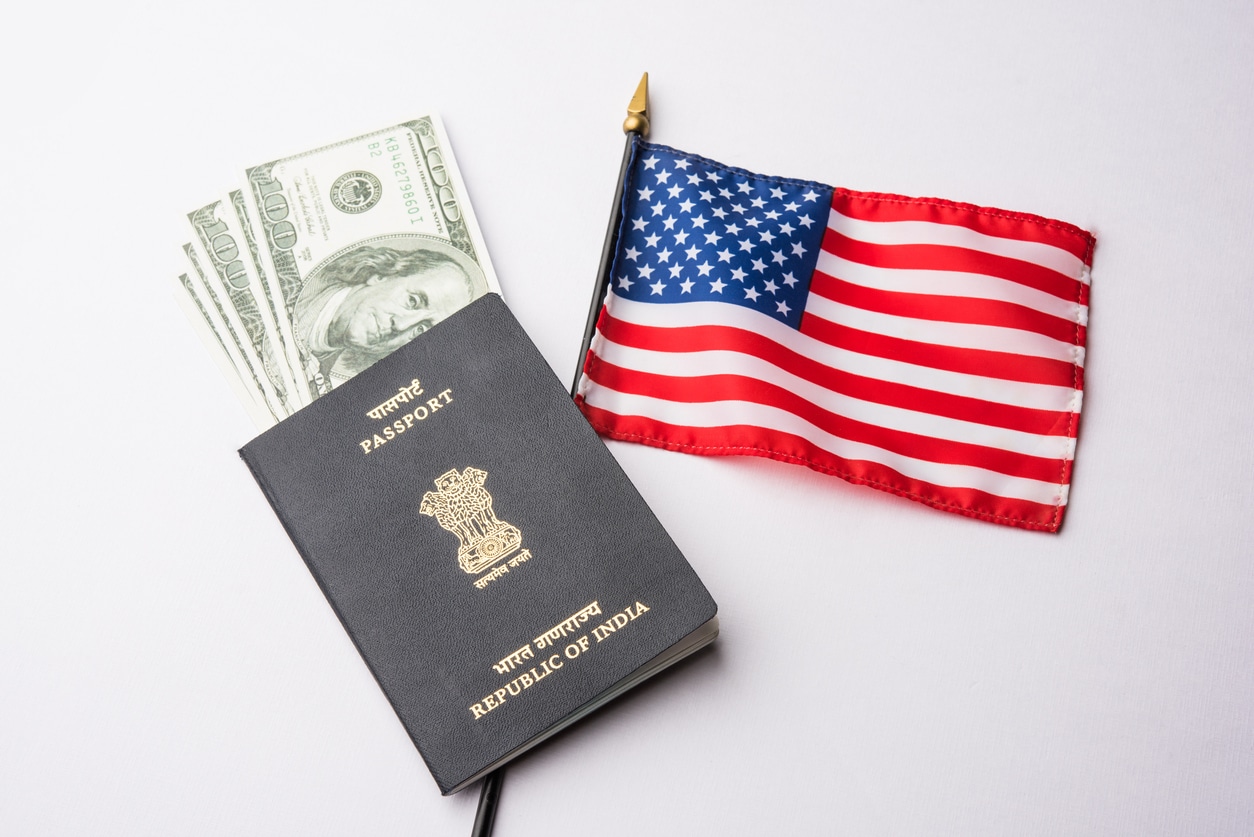An essential part of the process for any overseas student wishing to study in the United States is being ready for the interview for an F-1 visa. Candidates have the chance to prove during the interview that they are eligible for the visa and that they really want to study in the US.
This blog offers a thorough summary of frequently asked questions during F-1 visa interviews, along with sample responses, to help potential students prepare.
Checkout the sample questions for the F-1 visa interview and student responses designed to give you the confidence you need to get through the process. Learn about frequently asked questions concerning your preferred university, planned major, finances, ties to your home country, and adjusting to cultural differences.
F-1 Visa USA Interview Questions and Answers
Here are some common F1 visa interview questions and answers for Indian students applying to study in the USA
1. About Your Studies
Here are some common questions asked during an F1 visa USA interview
Q. Why do you want to study in the United States?
This is your chance to show your passion for your field of study and how an American education fits your goals. Mention specific aspects of the program or university that interest you. Tailor your answer to the strengths of the universities you have applied to. Mention a program, research project, or faculty that inspires you and fulfills your goals.
Be specific: Give specific examples of how an American education has benefited you. Don’t just say “better career prospects”; explain how American universities can provide you with specific skills or knowledge that will be valuable in your desired field.
Relate it to India (optional): If you plan to return to India after graduation, you can mention how an American education will help. You are growing in your field in India. Show passion and excitement: let your enthusiasm for your studies and maybe study in the USA!
Sample answer
I have opted to pursue my studies in the United States due to the outstanding standard of instruction and emphasis on creativity.” I have a special interest in [name a particular program or field of study] at [university name]. Their state-of-the-art facilities and internationally recognized faculty are exactly what I want to [insert desired academic or professional objective.
In addition to my academic pursuits, I’m excited to explore the rich and varied US culture. My perspective will be widened, and this exposure will aid in the development of my excellent teamwork and communication abilities.
In the end, my education in the US will provide me with the skills, contacts, and knowledge I need to [explain how you’ll advance your area, whether in India or elsewhere.
Q. What career plans do you have after graduation? (Explain how your American education will affect your future career aspirations in India or elsewhere.)
Sample answer
My career goal is to become [desired job title] in [industry]. I am particularly interested in [certain interests in this field]. At my previous job [previous company] [mention my relevant experience with the STAR method], this experience helped me develop strong [specify relevant skills].
In the long term, I see myself in [desired future role], leading and managing projects that [specify the desired impact].
I understand that the industry is constantly evolving, so I am committed to continuous learning through professional development courses and keeping up with the latest trends.
Q. Why did you choose this university? (Highlight what makes this university unique and suitable for your goals compared to other options.)
Sample answer
I chose [university name] because of its exceptional reputation in [your field]. I am particularly impressed with [mention specific program or faculty]. Their work [specify the field of research] fits perfectly with my interest in [your specific academic interest].
In addition to academics, I am interested in the focus of [university name] [specify aspects of university culture that appeal to you, such as interdisciplinary learning research opportunities].
Begin your journey to study in the USA with Great Learning!
- Experience low-cost education with no GRE/TOEFL needed.
- Access world-class universities in the USA.
- Choose the learning format that suits you—full-time or hybrid.
- Benefit from up to 3 years of post-study work visa.
2. About Finance Background
Here are some common questions that are asked during F-1 visa USA interview
Q. How will you finance your education? (Be prepared to explain how you will cover tuition, living expenses, and other expenses. Mention scholarships, loans, or financial aid from family if applicable.)
Sample answer
I’ve carefully studied a number of options when it comes to financing my education in order to make sure that my academic endeavors are sufficiently funded. First and foremost, I have worked hard to apply for grants and scholarships, using my extracurricular activities and academic accomplishments to my advantage to get money.
I also want to look for part-time work options, such as internships or jobs on campus, to help me supplement my income and pay for living expenses.
In addition, I have been saving money since I realized how important it is for me to take personal responsibility for my finances in order to support my academic endeavors.
Last but not least, my family is dedicated to helping me succeed in my academic ambitions, providing both financial support and steadfast encouragement. With these tools at my disposal and a proactive attitude to financial planning, I can afford to pay for my schooling.
Checkout A Budget-Friendly Way to Study in the USA for Indian Students for strategies to save money while studying abroad.
Q. Who is sponsoring you?
(Inform the interviewer of any scholarship you have received to study in the US, along with other pertinent information. Mention your parents if they are your sponsors; if you are being sponsored by someone else, identify them and the nature of your relationship (e.g., “My uncle, James Lee, is funding my education.”)
Read more: How to Get a Scholarship to Study in Germany in 2024
3. About Your Background
Here are some common questions that are asked during an F-1 visa USA interview
Q. Tell me about your academic background. (Briefly discuss your educational history and accomplishments in your chosen field.)
Sample Answer
I completed my undergraduate studies at [Name of University] in [Your Field of Study]. I concentrated on [what you enjoyed learning] in college and joined clubs and organizations around it. In addition, I participated in workshops and internships to broaden my knowledge and improve my academic areas.
I excelled in my studies and even won a few for my hard work. To learn more about subjects that attracted me, I also completed independent projects.In order to learn even more, in addition to my usual classes, I also completed additional courses and obtained certifications in [name any relevant courses or certifications].
Q. Do you have work experience in your field?
If yes, highlight relevant experience that demonstrates your readiness for the program.
Sample answer
“I worked at Wiler, Inc. for five years as an executive assistant in administrative support positions. In my capacity as the CFO’s executive assistant at the moment, I regularly work with other PAs to manage calendars, arrange travel abroad, and compile research reports for the financial specialists in our six global offices.
I made improvements to our email filtering system at the start of the previous year in order to increase office collaboration and decrease the number of missed messages by 28%. I am aware of how much email communication is used in your company.
Thus, I want to use my organizational skills to expedite the communication procedures in this office.
Q. What are your strengths and weaknesses?
(Be honest, but focus on the strengths of your studies and how you will address the weaknesses.)
Step into a brighter future by studying in the USA with Great Learning!
- Experience low-cost education—no GRE/TOEFL necessary.
- Learn from top universities in the USA.
- Choose from full-time or hybrid programs tailored to your needs.
- Secure a post-study work visa for up to 3 years.
Sample answer
1. Strengths
I enjoy keeping up with the latest developments in the tech sector. I can foresee issues before they arise because I am well-versed in SAP due to my current role. In my personal life, I enjoy playing around with technology, and this skill has been useful in the profession when I become well-versed in a piece of software or program.
2. Weaknesses
I tend to be really hard on myself, which can result in self-deprecating thoughts and, eventually, burnout. By documenting my goals, objectives, and important outcomes and allocating time to recognize and appreciate both minor and large milestones and accomplishments, I’ve discovered that I can prevent this. This has improved my ability to prioritize my most important work and helps me stay focused on how I can best serve the team.
Q. Do you have family ties in the US?
(Explain your situation honestly. Family ties may not affect your application, but be prepared to confirm to the visa officer that you intend to return to India after your studies.).
4. Academic Capability
Here are some common questions that are asked during an F-1 visa USA interview
Q. What are your test scores?
Provide the results of all the exams you’ve taken, including standardized tests (like the GRE, GMAT, ACT, and SAT) and English language assessments like the Test of English as a Foreign Language and the International English Language Testing System exam (IELTS).
Q. How will you manage the cultural and educational differences in the US?
Although it may seem difficult, managing cultural and educational disparities in the US is achievable with the correct approaches. Above all, it’s critical to maintain an open mind and to be open to new ideas and experiences. Reading, watching documentaries, and going to cultural events are all excellent ways to gain knowledge about various cultures and educational systems.
Developing ties with individuals from different backgrounds is also essential since it promotes respect and understanding. In addition, if you need help adjusting to these adjustments, feel free to ask friends, family, or experts for assistance.
Respect for other people is very important. It’s important to approach conversations with inquiry and respect rather than making assumptions or applying prejudices.
Last but not least, adjusting and changing your strategy will make navigating cultural and educational differences easier for you. You may effectively handle differences and cultivate an appreciation for the diversity that exists in the US by implementing these tactics.
Q. How good is your English?
The TOEFL and IELTS assess your proficiency in speaking, writing, reading, and understanding English. Even though the university you want to attend has already accepted your application, you may still show the interviewer how committed you are to improving your English-speaking abilities by mentioning your TOEFL and IELTS scores. Inform the immigration officer that you hope to become more fluent in English by interacting with the diverse population of the United States.
For overseas students hoping to study in the US, getting through the F-1 visa interview process is a big step. To help applicants prepare, we have listed frequently asked questions about F-1 visa interviews throughout this guide and included sample responses.
Students can effectively communicate their eligibility and sincere purpose to study in the US by outlining their motivations, academic objectives, and strategies for financing their school.
To further bolster their candidacy, they can highlight their ties to their own nation and their willingness to adjust to cultural differences. An applicant’s chances of obtaining an F-1 visa to begin an exciting academic career in the United States can be increased by being well-prepared and confident for the interview.
Conclusion
Preparing for your F-1 visa interview is essential to ensure a smooth and successful application process. By familiarizing yourself with common interview questions and learning from the experiences of other students, you can build confidence and present yourself effectively to the visa officer.
Remember to convey your genuine intentions for studying in the U.S. and showcase your academic and career goals. With the right preparation and a positive mindset, you can increase your chances of securing your F-1 visa and embarking on your educational journey in the United States.
FAQs
Here’s what a visa officer had to say about How to Dress for a US Visa Interview. There is no dress code. Wait to dress formally (it’s awkward and unnecessary). Just make sure your clothes are clean and tidy, and you’ll be fine.
A visa does not guarantee entry into the United States.
These questions cover academic ability, funding, study plans, and college options.









